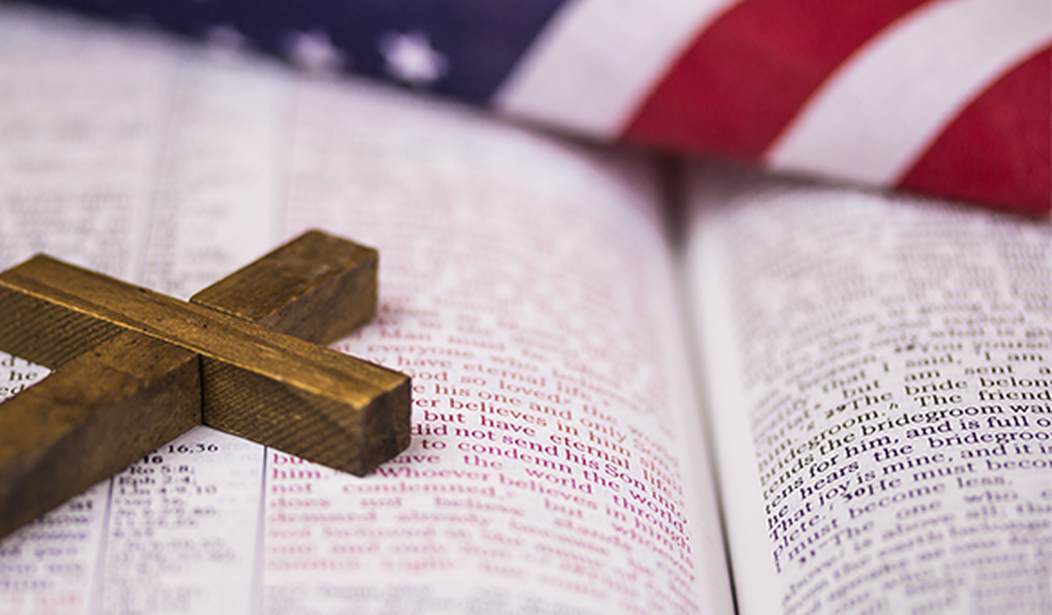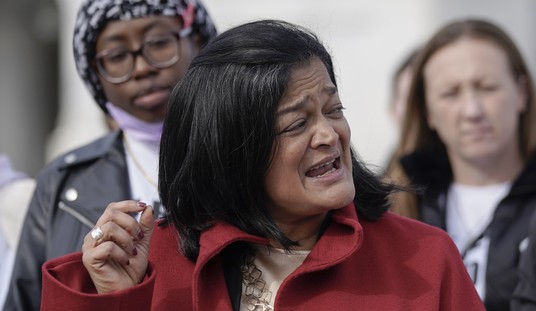Why is it important to pray for our nation? Perhaps the simplest way to put it is that God transcends politics. He sits above them and is not hindered by them. As such, when we pray, we are appealing to a God who is deeply involved in human affairs while remaining unconstrained by them. Yet, this simple answer leaves certain elements of the question unclear, particularly when Christians join in prayer with people of other faiths (or no faith at all). The ambiguity of praying with those who do not proclaim “Jesus is Lord” requires that we clarify to whom we are praying, why that’s important, and how we (Christians) are related to our nation.
First, when Christians pray, we pray to the Triune God. Whatever value there is in non-Christian prayer, the Bible is clear about the dangers of praying to an unknown God. We might, for instance, think of Jesus’s critique of the “many words” used in Gentile prayers in Matthew 6. Prayer to the Triune God is informed by God’s revealed word and aimed not at signaling our piety to the world (again, a warning from Jesus regarding the prayers of the religious leaders) but an expression of dependence upon God the Father, Son, and Holy Spirit. As I note in Serpents and Doves, “Praying to an unknown god to validate one’s own political interests may be religious…it just isn’t Christian.”
Specifying that we pray to the Triune God is crucial to the church’s witness. We do not want to give others the impression that praying to any old god will do. The gods crafted by human hands are a fiction…the product of “deluded hearts” (Isa 44:20). Praying to the Triune God whom we know is a privilege only Christians have today. We must take care to make that privilege clear.
Second, it can be tempting to construe “importance” with “effectiveness.” Clearly, prayer is effective, but it is not important because we get our way through prayer. Instead, prayer is important, in part, because through prayer we offer testimony to the Creator God who has delegated authority to all governing authorities. As such, even when America goes the way of the nations, which are always temporal and provisional (Acts 17:26), our prayers have not been in vain. Christian prayer demonstrates our submission to God. When we think of the importance of prayer, we think of the witness of the church within the world.
Recommended
At a basic level, when we pray, we acknowledge that governing authorities sit under the authority of the Triune God having been instituted by him. As we read in Romans 13:1, “...For there is no authority except from God, and those that exist have been instituted by God.” We see similar affirmations of God’s authority of nations and rulers in, for instance, Psalm 22:28 which reads “For kingship belongs to the Lord, and he rules over the nations” or in Jeremiah 25:9 in which Nebuchadnezzar, the king of Babylon, is called God’s servant.
During our various political seasons, we are encouraged to vote and often put a great deal of energy into considering the pros and cons of a given candidate. Yet, God appoints our governing authorities. Prayer reminds us that God determines who our political leaders will be. Like Nebuchadnezzar, they may well be individuals we would not choose for ourselves. Praying, however, reminds us that our primary obligation…the one that cannot be compromised…is to align ourselves with God’s will by learning to live under the authority of Christ. Through prayer, we give praise to the one who gives wisdom and blessing, to the one who restrains evil, to the one who reigns over all things and will ultimately make all things new.
Finally, we need to clarify our relationship to “our nation.” On one level, Christians living in the United States are “Americans,” yet we are also sojourners and exiles (1 Pet 2:11). Paul contrasts those who “walk as enemies of the cross of Christ” with God’s people whose “citizenship is in heaven” (Phil 2:18-20). As people united with Christ, we recognize his authority above all things. When we pray for our nation, then, we do so within the framework of rightly ordered loves. We love God with all we are and have. That love shapes our love for others both individually and collectively. As such, we can love our nation rightly only as an extension of our love for God.
We are Christian first. All of our loves flow from our unreserved and unrestrained love for God. Recognizing that our loves must be ordered should not cultivate a disregard for our world, but it should situate our national love within our love for God and neighbor. Prayer helps us to situate and reorder our loves, in part, because it requires us to engage in an activity that seeks solutions beyond ourselves and the world. In the act of prayer, we remember we are not responsible for fixing the world but for living faithfully in a world so broken only God can fix it. Through prayer, we acknowledge that our agendas are insufficient and seek God’s guidance.
Praying for our nation, then, is crucial because it sets Christians up as an alternative to the world and situates our nation within the broader sovereignty of God. The world needs to see the difference Christ makes and it sees that through the life of the Church. When we pray, we point beyond the visible challenges of the fallen world to the spiritual realities that lie beyond them. So, why is praying for our nation important? It is important because when Christians come together to pray on the National Day of Prayer on May 2, (or any other day), we are pointing to and glorifying the Triune God by expressing our dependence on Him and committing ourselves to follow His lead.
Dr. James Spencer currently serves as President of Useful to God and President of D. L. Moody Center. His newest book, which is titled “Serpents and Doves: Christians, Politics, and the Art of Bearing Witness,” is available on amazon.com. He previously published “Christian Resistance: Learning to Defy the World and Follow Jesus,” “Useful to God: Eight Lessons from the Life of D. L. Moody,” “Thinking Christian: Essays on Testimony, Accountability, and the Christian Mind,” as well as co-authoring “Trajectories: A Gospel-Centered Introduction to Old Testament Theology.”

























Join the conversation as a VIP Member